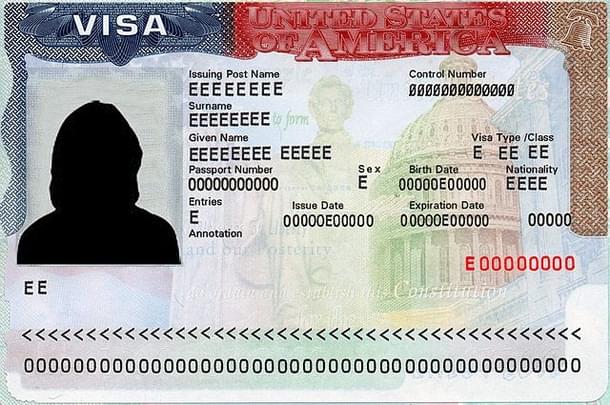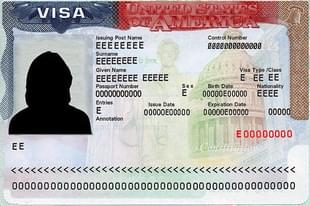Business
H1B Fee Hike And Nonsense: How US Is Turning Into A Nation Of Losers
R Jagannathan
Dec 31, 2015, 06:25 PM | Updated Feb 12, 2016, 05:31 PM IST
Save & read from anywhere!
Bookmark stories for easy access on any device or the Swarajya app.


The US is trying to slam the door on immigration and talent – two factors that have been the key reasons for its success as an entrepreneurial nation.
Is America fast turning into a nation of losers? The answer should not be in the affirmative as yet, but the signs are ominous. The US of A, which proved to be such a beacon of hope and aspiration for millions of people in the world for over 250 years, attracting immigrants and talent from everywhere, is now trying to close its doors, bit by bit. Fear is overtaking optimism and positivity.
The latest signal is the US law that increases visa fees for large IT companies that have more than 50 percent of employees using H1B or L1 visas. They have to pay an additional fee of $4,000 per H1B visa from April 2016, adding up to a bill of $400 million annually for Indian IT companies. The cost isn’t the problem; the mindset it. The cost is a fleabite for an industry generating $150 billion in annual revenues. But a nation that thinks jobs can be stolen is essentially in a defensive mode. It is thinking like a loser, where you want to prevent job loss rather than focus on job creation. Further confirmation is available from a Times of India report today (31 December) that says the US has also deported students, businessmen and people with visas issued by their own embassies.
Why does the world’s economic and military superpower, with a GDP of $18 trillion, fear people from one with just $2 trillion GDP? More pertinently, why does a country that is synonymous with capitalism and competition now fear these very two words? The hike in visa fees is nothing but a transparent attempt to build a protectionist wall to prevent high-quality talent from entering the US – the same talent that powers the US surge in technology – so that locals can get these jobs at higher wages. It is a losing proposition.
A Manhattan Institute report by Diana Furchtgott-Roth has this to say about the US’s protectionist stance against talent immigration:
A growth-oriented immigration policy would allow a greater number of immigrants to legally enter, stay, and work in the United States. Arlene Holen, using Congressional Budget Office methodology, has estimated that if no green card or H-1B visa constraints had existed in the period 2003-07, an additional 182,000 foreign graduates in science and technology fields would have remained in the US. Their contribution to GDP would have been $14 billion in 2008, including $2.7 to $3.6 billion in tax payments. Three hundred thousand H-1B visa holders would also have remained in the US labour force, earning $23 billion in 2008 and generating $34-$47 billion in tax revenue over the next decade.
The US is still the world’s most free-trading nation; it is still an icon of freedom and enterprise, but it is building moats around itself rather than bridges. Post-9/11, the US has been busy sealing itself hermetically from the world by denying many people easy entry into the country; then it started spying on the whole world, including its own citizens (ask Julian Assange and Edward Snowden). The net result is not greater security, but more fear. Uncle Sam now has started jumping at every shadow. He has started withdrawing, tail between his legs, from every area of combat where he was earlier the Globocop, leaving behind a trail of chaos and violent sectarianism.

Worse, the US has become suspicious of business and profits. This is why it has a Sarbanes-Oxley law (SOX) that creates complexity, bloats compliance costs and retards job-creating enterprise. If any country other than America, with the world’s largest market, had written such laws, it would have slid down the Ease of Business rankings. America still survives on past perceptions about it being business-friendly. But post the dotcom crash, which prompted SOX, and post-9/11, which prompted America to raise defensive security walls around itself, and post-Lehman, the country’s basic character has changed. It was once said that the business of America is business; now we have an America that is suspicious of business and wealth creation. If this had happened anywhere else but in America, that country would be called Socialist, and business-unfriendly.
The US is headed down the path of covert mercantilism and building itself into Fortress America, on the lines of Fortress Europe and Fortress Japan, where competition may be intense within, but the general aim is to keep the barbarians out, either by legislating expensive laws or by creating mind-boggling regulations that will ultimately slow down entrepreneurship.
A small aside: for the last few weeks, this writer has been busy complying with American laws even though he has no business there or anything to do with that country beyond occasional tourism. Every mutual fund one owns and every bank I bank with now expects me to make statements that I don’t do business in America or have earnings there, thanks to Fatca – the US Foreign Account Tax Compliance Act.
While this author has no sympathies for tax evaders or tax havens, what the US is doing is stupid and foolish. A strong nation does not ask everyone to make a statement that he is not a crook or evading taxes. Asking every Indian investor or taxpayer to affirm he is not subject to US taxation is like the government of India asking every American to give us the assurance that he or she is not earning anything in India that is taxable here. But this irony never seems to strike Americans.
Remember the fable of the King who wanted a solution to avoid getting his feet dirty whenever he walked across his kingdom? One illogical solution, no doubt offered by vested interests, suggested that the ground should be fully covered with leather; a wise advisor intervened, and offered a more sensible solution: the king should wear shoes.
To claim more taxes, the US wants the whole world to get into the act of allaying its anxieties on tax evasion instead of merely gathering intelligence on those most likely to have diddled the IRS – ie, America’s own citizens or green card holders. In matters of security, the US wants to finger-print the whole world, though practical politics and issues of sovereignty allow it to only do so only with those who want to visit the US. But when Europe and other terror-affected continents turn to the same solution, the US will have sold this form of universal security idea to everyone. And the US is sure to demand access to this database – or even steal it. Meanwhile, it is reading every email you send to your dad for terrorist implications.
Extreme security consciousness, where you feel unsafe if you don’t have some dope on every human being, is paranoia, a sign of excessively defensive thinking. It’s a loser’s attitude to fighting the everyday battles of life. Of course, only the paranoid survive, as Andy Grove of Intel wrote; but the paranoid also can never be happy or free.
India, which has basically no clue about where the next terror action will happen, has, by sheer callousness and an inability to get its intelligence act right, exhibited a more positive attitude towards tacking terror than the US. Maybe it is because of the lower value we place on human life here, but largely it is because we are a plural people, less uncomfortable with difference. We allow so many terror sympathisers to live here that often they find it difficult to strike us without injuring one of their own. Whenever we are hit by terror, we shout and scream a bit and move on. And terrorism loses its ability to terrorise us with every strike. If terrorism loses the battle against humanity finally, it will be because India has shown the way – by default, one must add.
I will explain why this works with an analogy. Every human being is infested with bacteria – some helpful, some dangerous. If you treat all bacteria as enemies freeloading on your body, you will end up killing yourself. To live, you have to figure out which ones are useful and which ones harmful, and focus on reducing or eliminating the threat from the latter. Another way to do it is to build internal resistance to illness; this way even the dangerous bacteria fail to incapacitate you. Another reality: if you rely too much on antibiotics to deal with them varmints, the bacteria/viruses become immune to them. And your body also loses its innate ability to fight.
The bottomlines is this: the US must build the resilience to cope with threats, not try and eliminate them altogether by protectionist policies.
So here are a few predictions, assuming the US continues down this self-defeating path:
#1: The US will ultimately lose the battle against terrorism if it closes its doors rather than opens it. It is no coincidence that the decline of America as a superpower started the minute it started hitting out in all directions and built a fortress around itself after 9/11. In trying to defeat every potential threat, America has only created new enemies, and become less safe.
#2: The rule of law and freedom of enterprise have been vital to America’s success in the 20th century. But after the dotcom bust, the Lehman collapse and 9/11, America has changed so many laws to prevent the business criminal and the odd terrorist that it can no longer actually run its country by the rule of law. (Witness the sheer amount of gun killings and racial abuse it generates a century-and-a-half after it won the civil war.) The rule of law is subject to the law of diminishing returns. When you have few laws, simple laws, you can make them effective; when you have laws to deal with every contingency, every imaginable crime, you will fail to protect the rule of law. America is well down that path. India, which went that way, can vouch for that. We have still not learnt that fewer laws, well implemented, are better than more and more laws which no police or legal system can enforce.
#3: Capitalism is about allowing the markets to decide success and failure. It rewards achievers, and penalises failures. But failure is not permanent or stigmatised; it is merely a call to start again, try something else. Protectionism is about trying to prevent an inevitable failure. It won’t work. Capitalism can work only if all the factors of production – land, labour, capital – are free to find their optimum use. When this freedom is only available to one factor – capital – you cannot save capitalism. You cannot protect one factor of production from moving freely – which is what the restraint on H1B visas is all about – and believe that the others will work like a dream. The chances are capital will flee to the places where H1Bs are not needed. America is cutting down the branch on which it is sitting.
To be sure, America has been losing its winning spirit for nearly half a decade now. It began in the 1970s, when Richard Nixon severed the dollar’s link to gold; in the 1980s, when Japan rose, the US started forcing its trade partner to voluntarily reduce car exports; after 2008, it started distrusting its own businesses, and legislated dense laws that only lawyers can understand; then it went after tax havens, without asking itself why capital fled to these havens in the first place; now it is the turn of talent to be ringfenced in the expectation that it will create more jobs for Americans. It won’t.
Europe and Japan are Exhibits A and B of how restraints on immigration and talent can slow down growth, and possibly lead to prolonged stagnation. The exception to the rule is Germany, which, surprise, is constitutionally barred from stopping people at the border if they seek asylum. This is why Angela Merkel is letting nearly a million Syrian refugees in. She may not know it, but she is actually building up Germany’s long-term competitiveness when her neighbours are closing their doors.

India, despite occasional angst over illegal Bangladeshi immigrants, has been prevented by the incompetence of our border controls from building a rigid entry barrier for unskilled labour. The free movement of Nepalese and Bangladeshi workers makes it cheaper for our middle classes to focus on enhancing their talents and earning more. We are gaining from a door we were unable to close.
Maybe it is time the Americans relearnt the lessons from opening doors rather than closing them.
Jagannathan is former Editorial Director, Swarajya. He tweets at @TheJaggi.




